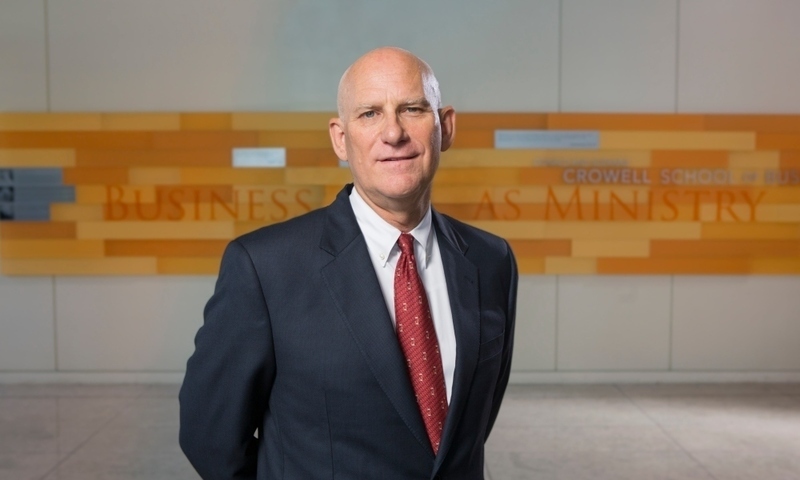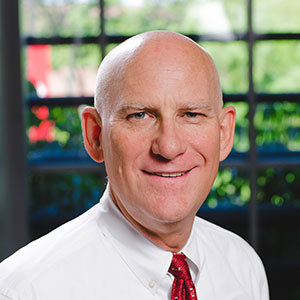There are key questions that leaders should ask themselves: What attributes do I want on my ideal team? Are these attributes that I see and can foster in myself? How can I build a team that experiences flow in their work, making work purposeful and meaningful and less like work?
As I have been thinking about our new Bachelor of Science in Organizational Leadership (more information coming soon!) I have also been thinking about six key words that I believe impact leadership.
The first three words are humble, hungry and smart. You may recognize these from Patrick Lencioni’s book The Ideal Team Player. We use this book in some of our leadership and teamwork courses at the Crowell School of Business due to the memorable and impactful structure of Lencioni’s approach.
The humility Lencioni advocates for can be summarized by the popular saying, “It’s really not about me.” The humble team player is not ego-driven or status-driven; they provide clear value while readily sharing credit with others. They don’t discount their own talent and contributions, they just enhance and celebrate the contributions of others.
Hungry team players are appropriately seeking to do more, contribute more, give more. And this hunger is not due to selfishness; rather, it is born of a deep capacity to take on more and still deliver. There is margin, capacity, and ability at the core of their hunger for doing more.
The smart team player reads others well, has emotional intelligence and a high level of self-understanding. Their interpersonal toolkit includes listening, observing, engaging, probing, and still more listening. They understand their own influence and impact on the team, and they moderate that influence for the good.
Most of us love serving alongside others who practice these virtues. Team members experience flow in their daily interactions with each other when they are humble, hungry and smart — and problems bring out not strife but solutions, as each person is encouraged to bring their best to the challenge. But when one or more of these attributes goes missing in a team member, work becomes, well … work, and it is left to leadership to fix the problems.
My other set of words comes from Jordan Raynor’s book, Called to Create: A Biblical Invitation to Create, Innovate, and Risk. This book is written to innovators and entrepreneurs who desire to align their entrepreneurial drive with their life of faith. Raynor’s three words are trust, hustle and rest. He juxtaposes the first two words — trust and hustle — with each other. A typical startup entrepreneur has an idea that may have value, but they know that this value will never be realized unless she invests inordinate — even unimaginable — amounts of time and personal energy to make it happen. In other words, they have to hustle to get the results.
Hustle seems to stand in sharp contrast to Lencioni’s humble, because it seems to be saying, it really is about me. Especially at the early stage of a startup, if I do not do it — and I do it and I do it and I do it — it will not get done. Lots of “I” there … too much “I”? Isn’t the life of faith a life of humbly trusting in God, not “I”?
But is working hard showing a lack of trust in God? Or do I need to simply keep hustling but give God the credit when what appears to be my hard work finally pays off?
That is where rest comes in to save the day! Sabbath rest accomplishes two essentials as we trust and hustle.
First, resting leaves room for our faith to emerge and puts God in the spotlight. If I can rest, trusting that God will continue to work on my behalf, it allows me room to step back and recognize the spiritual underpinnings of my entrepreneurial story.
Second, rest revives our minds, restores our energy, and reminds us that life is more than our accomplishments, even if we do think of them as “accomplishments for God” (a statement you should only make tongue-in-cheek).
If our cycles of entrepreneurial creativity and productivity are to truly serve others and be recognized as an outpouring of God’s common grace, then our humble, hungry, smart communities must practice patterns of living and working that embody trusting the Creator to work in our calling and in our hustling, while also letting our faith-driven rest empower fruitful and sustainable results. These are the kinds of innovative-yet-balanced leaders we seek to develop at Crowell.
As our fall semester ends and we look forward to commemorating the birth of our Savior, I find it an especially appropriate time to contemplate this balance of work and rest. For, despite our efforts and our achievements, we recognize that the things for which all people consciously or unconsciously strive — true flourishing, true purpose, true love, true life — can ultimately be found only by resting in the work of Christ.
Merry Christmas! Please keep us in your prayers, as you are in ours.
Dr. Gary Lindblad
Dean, Crowell School of Business, şÚÝ®ĘÓƵ
Crowell has two new leadership programs: The Master of Arts in Leadership and Innovation, and the Bachelor of Science in Organizational Leadership (launching in January).
 şÚÝ®ĘÓƵ
şÚÝ®ĘÓƵ

.jpg)
.jpg)

